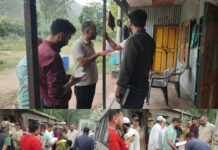Human trafficking, a heinous crime that preys on the vulnerable, inflicts unimaginable suffering on millions of individuals worldwide. This clandestine trade, characterized by the exploitation of victims for forced labor, sexual slavery, or organ harvesting, represents a grave violation of human rights and stands as a stark reminder of the darkest depths of human depravity. As we confront this abhorrent reality, it is imperative that we shed light on the insidious nature of human trafficking, dismantle criminal networks, and steadfastly advocate for the protection and empowerment of victims. At the heart of human trafficking lies the ruthless exploitation of individuals, particularly women and children, who are lured or coerced into situations of bondage and servitude. Whether through deceptive recruitment practices, physical coercion, or psychological manipulation, traffickers exploit the vulnerabilities of their victims, subjecting them to unspeakable horrors and robbing them of their dignity and autonomy. From forced labor in sweatshops, farms, or construction sites to sexual exploitation in brothels or massage parlors, the victims of human trafficking endure unimaginable suffering, often silenced by fear, shame, or the threat of violence. Moreover, human trafficking transcends borders, fueling a lucrative global industry that thrives on the exploitation and commodification of human lives. Organized criminal networks, driven by profit and impunity, traffic individuals across continents, exploiting legal loopholes and porous borders to evade detection and prosecution. The scope and scale of human trafficking underscore the urgent need for concerted international cooperation and coordinated efforts to disrupt trafficking networks, dismantle supply chains, and hold perpetrators accountable for their crimes. Central to our response to human trafficking must be a commitment to protecting and empowering survivors, who are often left traumatized and marginalized in the aftermath of their ordeal. Comprehensive victim-centered approaches, encompassing access to shelter, healthcare, legal assistance, and psychosocial support, are essential to facilitating the recovery and rehabilitation of survivors and enabling them to rebuild their lives with dignity and resilience. Moreover, efforts to combat human trafficking must prioritize the prevention of re-victimization and the provision of long-term support to survivors as they navigate the complex journey towards healing and justice. Furthermore, addressing the root causes of human trafficking requires a multifaceted approach that addresses the intersecting factors driving vulnerability and exploitation. This includes tackling poverty, inequality, discrimination, and lack of access to education and economic opportunities, which serve as fertile ground for traffickers to prey upon the marginalized and disenfranchised. By addressing these underlying drivers and empowering individuals and communities to assert their rights and agency, we can disrupt the cycles of exploitation and vulnerability that fuel the scourge of human trafficking. As we observe World Day against Trafficking in Persons and reaffirm our commitment to combating human trafficking, let us stand in solidarity with survivors, amplify their voices, and advocate for policies and actions that uphold human dignity, protect human rights, and eradicate modern-day slavery in all its forms. Together, we can build a world where every individual is free from exploitation and coercion, and where justice and compassion prevail over cruelty and indifference.

Dogra Herald is the media of J & K, breaking language and geographical barriers, connecting J & K to the rest of India.
0191 245 4946
info@dograherald.com
Latest articles
Ramban villages face frequent power cuts
iamjkstarr - 0
Ramban, June 10: Various villages of Ramban for the past few days have been witnessing unscheduled power cuts in addition to the scheduled...
Modi realised Vivekanand’s ‘Vision India’, translated it into ‘Viksit Bharat’: Dr Jitendra
DOGRA HERALD BUREAUJAMMU, Jan 12Prime Minister Narendra Modi realised Swami Vivekanand’s “Vision India” and translated it into...
Finland President dials PM Modi, discusses ongoing collaborations in digitalization, mobility
AGENCYNEW DELHI, Apr 17Prime Minister Narendra Modi and Finland President Alexander Stubb reiterated their commitment to further strengthen and deepen the partnership...


























